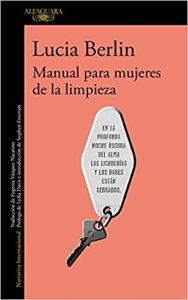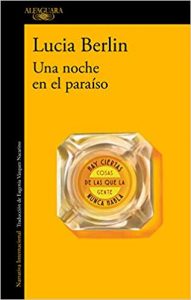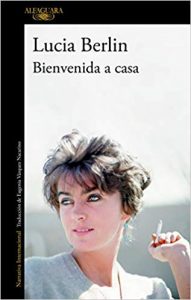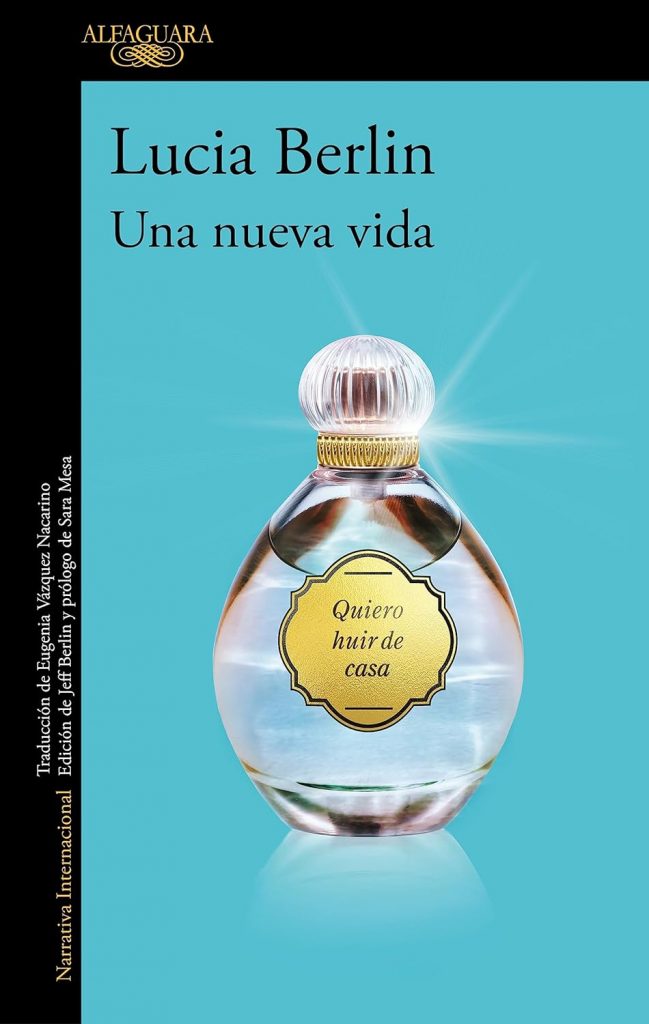In the hall of fame of mythical American writers (where the books of salinger, Cloak, Bukowski, Hemingway o kennedy toole among others), Lucia Berlin He recently placed his wedge and his work with that bitter taste of the "justice" of success arriving at the wrong time.
Because it took more than a decade after her death for her "manual for cleaning women" to achieve the worldwide success that it well deserved from that crude, magical, hopeful, melancholic, contradictory and essentially human realism, exposed with the simplicity of his strokes slipped into settings and characters.
It is true that, as in other authors of that great group of mythologized, the disruptive vital part of the creator herself is soaked with that stamp of authenticity, of revealing a vision of the world from the outskirts of social conventions.
The days of Lucia Berlin They took place with that forced improvisation of the disconnection from any formula of normality. Nothing better for the creator than to be a outsider. Nothing is worse for a person than seeking accommodation between marked deficiencies of all kinds.
The only obvious thing is that when Lucia Berlin he began to write, frisaba that narrative excellence of those who are separated, of the damned, of those who disagree with guidelines and patterns. Because only these types of authors are capable of traveling to hell to tell us about them.
3 best books by Lucia Berlin
Handbook for cleaners
When you hear the already recurring quote that the revolution will be feminist or it will not be, the nature of this book makes special sense. The stereoscopic vision of the lives that make up the branches of this book offers the relief and magnitude of the strength of the feminine. The world continues to be an aggressive space for everyone, especially for women in the 50s in the United States in which growing rights were not yet supported by the reality of consciences.
The question that emerges from this magical summation of stories from female universes is how to face that fatal side that can come from simple bad luck or from the loss of horizons from any lack that ends up arriving. More than forty stories with their clear bond but facing the diversity of so many protagonists.
A cosmos full of stars more than the usual literary microcosm, a whole meticulously stitched together from each story that could well have been a novel. From the author's own experiences, who on more than one occasion occupied marginal spaces, this compendium of stark stories, sometimes burlesque (with that necessary humor to survive), acidic and tremendously emotional to the point of chilling.
One night in paradise
The worst thing about being an out-of-season creator is usually that the most fervent reception from the public occurs precisely when one is already raising mallows. The legend of Lucía Berlin as the cursed writer, built from family uprooting and consolidated from her stormy emotional life, grew until it became an emblem of the absolutely free creator, a firm commitment to life in her extreme experimentation that guided her through an intense existence in all possible aspects of the tragic and also the comic.
The vital parallelism of style and narrative format with Raymond Carver delves into the idea that only those who visit hell can end up creating the most beautiful narratives, understood in all their magnitude some time later, when the limitations of each era seem to have been conquered by a remote time and space.And so this volume comes to this day with more than twenty stories of the passionate teacher and the cleaning woman, of all those women that Lucía Berlin unexpectedly was in her histrionic passage through the world. Stories that sometimes rescue snapshots of happiness and then soon after plunge into melancholy (that kind of happiness of being sad that only great creators know how to evoke in prose as verses for the soul).
In her hectic life adventure, Lucia was as many characters as those who appear in these stories. A night in paradise oozes sensitivity of sadness and joy, longing for what is never going to be and enjoying the insignificant. Between the pages of these stories we suffer the disenchantment and the harsh reality of human nature in its most perverse aspect of reason, and later we discover the most helpful philosophy to overcome any trance.For Lucía Berlin, her characters are absolute protagonists of the soul, a soul exposed to all its possibilities from the simplicity of a world that is always small and always doomed to despair.
Welcome Home
The book that closes the case of the Lucia Berlin myth. One of those volumes for readers dazzled by the life and work of the author. With the warmth of the title, this book brings us even closer to the author in her most personal context.
Among the pages we find a good compendium of the Lucía Berlin universe, including letters or graphic documentation rescued from the luminous, between the shadows, becoming of this writer.
All those mythomaniacs of this rediscovery of the writer will find the strength of already autobiographical stories in a United States loaded with broken dreams like those of the author, a great representative of that human being seen as a loose for all the sad other inhabitants of the tedium marked by the beat of a society so capable of alienation.
For this reason, in Lucía Berlin's misfortune, an admirable space of freedom for the soul is rescued, starved before the circumstances but endowed with unattainable essences for the mediocrity.
Other recommended books by Lucía Berlin
A new life
A necessary uprooting to find oneself beyond the familiar. The nomadic instinct as the basis of anthropology was lost with the first settlements, with the sedentary lifestyle that turns the land into a homeland and encloses the soul. Lucía Berlin flees from there, from the dangerous stereotypes, from the fixation of ideas, from the traps of routine. Starting a new life can be choosing a good book to read.
This volume, prepared exclusively by his son Jeff Berlin for readers in Spanish, brings together fifteen unpublished stories in our language, ten of them originally published in his story books, but not included in Manual for Cleaning Women or in One Night in Paradise; some only appeared in magazines,
such as the shocking "Suicidio", and others completely unpublished, such as "Manzanas", his first story, and "The Birds of the Temple", a memorable portrait of life as a couple. Also, a series of revealing articles, essays — among which is “Bloqueada” — and extracts from her never-before-published diaries. Jeff Berlin gives us privileged information about the texts and their genesis, as well as a brief final tour of Lucia's life.
As Sara Mesa writes in the prologue, «to read these unpublished texts is to witness the transubstantiation of life into fiction. […] A privilege". The emotion, the tenderness, the irony tinged with pain and melancholy, life itself portrayed with its unmistakable style, and the themes that are so unique to it: love, motherhood, sex,
Friendship and rivalry between women, literature and, like never before, death come together in these pages that invite us to discover or rediscover who, after years of unjust oblivion, is today a cult author at the height of Carver and Bukowski, revered by the press, booksellers, writers and readers.




